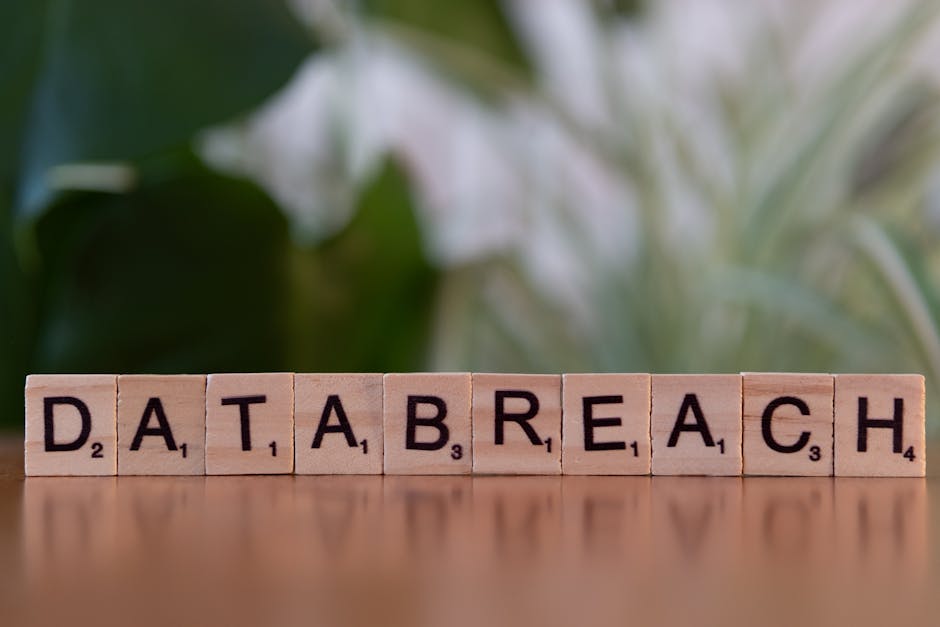What to Do After a Security Breach
Have you ever wondered what to do if your personal information gets stolen? A security breach can feel like a nightmare. But knowing the right steps can help you regain control and protect yourself. Lets break it down.
What is a Security Breach?

A security breach occurs when someone gains unauthorized access to your information. Think of it like a thief breaking into your house. They can steal valuables, and in this case, that includes your data.
According to recent studies, 43% of cyber attacks target small businesses. And while it may seem far away, it can happen to anyone.
What Should You Do First?

As soon as you find out about a breach, take a deep breath. Then, act quickly. Heres a simple checklist:
- Change your passwords immediately.
- Check your accounts for unauthorized activity.
- Notify your bank and credit card companies.
Changing your passwords is crucial. Use strong, unique passwords for each account. A mix of letters, numbers, and symbols works best. If you struggle to remember them, consider using a password manager.
How Do You Identify the Impact?

Now that you’ve secured your accounts, it’s time to assess the damage. Heres how:
- Review your financial statements.
- Monitor your credit report.
- Look for strange activity on your accounts.
Checking your financial statements can reveal unauthorized purchases. You can get a free credit report once a year from major credit bureaus. This helps you spot any issues early.
What Steps Should You Take to Protect Your Information?

After identifying the impact, focus on protecting your data. Here are some effective strategies:
- Enable two-factor authentication on your accounts.
- Keep your software updated.
- Be cautious with emails and links.
Two-factor authentication adds an extra layer of security. It requires not only your password but also a code sent to your phone. This makes it harder for hackers to get in.
Should You Report the Breach?
Yes, you should! Reporting helps authorities track down cybercriminals. Heres who to contact:
- Your local police department.
- The Federal Trade Commission (FTC).
- Credit reporting agencies.
Filing a report with the FTC can help you recover losses and protect your identity. You can visit [FTC Identity Theft](https://www.consumer.ftc.gov/topics/identity-theft) for more resources.
How Can You Recover Your Identity?
If you’re a victim of identity theft, recovery is possible. Heres a step-by-step guide:
- Place a fraud alert on your credit report.
- Consider a credit freeze.
- Work with identity theft protection services.
A fraud alert makes it harder for identity thieves to open accounts in your name. A credit freeze prevents creditors from accessing your credit report until you lift the freeze.
What Are Some Common Misconceptions?
Many people have questions about security breaches. Here are a few common misconceptions:
- I’m too small to be targeted.
- My information is safe if I don’t use the internet.
These ideas are dangerous. Cybercriminals don’t discriminate. Even small businesses and offline systems can be vulnerable.
What Should You Do Moving Forward?
After a breach, it’s essential to stay informed. Here are some ongoing actions you can take:
- Regularly update your passwords.
- Keep an eye on your credit report.
- Educate yourself about cybersecurity.
Staying informed about the latest threats can prevent future breaches. Sign up for newsletters or follow cybersecurity blogs.
When Is Professional Help Necessary?
In some cases, you may need professional help. If the breach is severe or if you’re overwhelmed, seek assistance from experts. Services like identity theft protection can guide you through the recovery process.
How Can You Educate Others?
Share your knowledge with friends and family. Help them understand what to do after a breach. You can even host workshops or write blog posts about cybersecurity.
By educating others, you create a safer community. Remember, prevention is key!
Final Thoughts: Stay Vigilant After a Security Breach
Recovering from a security breach takes time and effort. But with the right steps, you can protect yourself and your information. Remember to stay vigilant, keep learning, and share your knowledge.
Take charge of your cybersecurity. Use the steps outlined here to safeguard your future. Your data deserves protection!
For more in-depth information on cybersecurity, check out our post on cybersecurity best practices.



